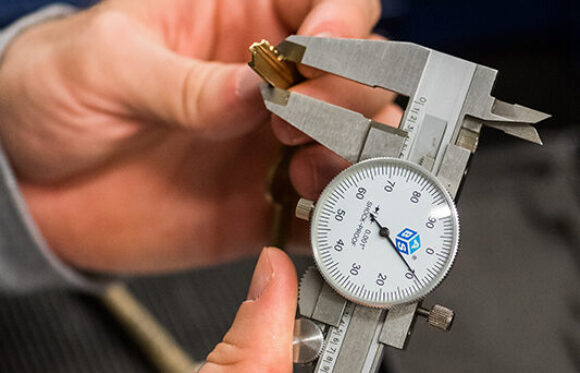What If There Were No Skilled Workers?

Just for a minute, think of a world where there were no skilled workers – no carpenters, metalworkers, electricians, locksmiths, plumbers, painters, or anyone who could build, repair, plumb, wire, or do anything involving training and hands-on experience.
Think of all the infrastructure that gives us our homes, allows businesses to exist and grow, gives us access to running water and indoor plumbing, and builds the automobiles we travel in and the roads we travel on. What would our world be like without all the things we rely on for our quality of life? It’s unthinkable, right?
So, it’s not an overstatement to say that the success of our economy stems from the skilled workers who have built the infrastructure we rely on each and every day. And, it is skilled labor who has kept that infrastructure sound and working for generation after generation of Americans. In fact, when we think of civilizations back to ancient times, what comes to mind is what they built – the Mayan temples, the Roman aqueducts, the Great Wall of China, the cities of ancient Greece. There has always been a need for skilled workers, and there will always be a need. While automation is stripping many workers of their jobs, the demand for skilled labor is higher than ever. In fact, the ability to work with our hands is perhaps job security like no other.
You could argue that NBSS, along with other vocational schools, really drives the economy. NBSS, by training the next generation of skilled labor since 1881, has not only taught students invaluable skills needed for gainful employment, but has helped fuel the economy through trained craftspeople who directly contribute to our infrastructure and companies’ bottom lines.
Don’t take our word for it. Consider this recent MarketWatch article citing the Federal Reserve’s conclusion that our economy is actually running out of room to grow partially because of the shortage of skilled workers. “Shortages were cited across a wide range of occupations, including highly skilled truck drivers [and] specialized construction…workers.” In other words, a healthy pool of skilled workers = economic growth.
Just as a building needs to be built on a solid foundation, so skilled labor serves as the foundation we build our economy on.
It doesn’t stop with infrastructure. Just as a building needs to be built on a solid foundation, so skilled labor serves as the foundation we build our economy on. The need for more or better infrastructure requires teams of experts working together. To successfully execute a building project for example, carpenters will work with plumbers, painters, roofers, electricians, etc. Skilled labor demand extends beyond the workers themselves to the companies that employ them, and the companies they build that employ their own workers. That translates to support staff and more workers and families that feed the local economy. More people working brings more tax revenue which in turn can go back to the economy to pay for more and better infrastructure and municipal services such as police, firefighters, teachers, etc.
So, when you read about the need for skilled workers in the U.S. (like this U.S. News piece), think of our country’s foundational need for vocational schools such as NBSS. And, if you’re one of our students or graduates, we hope this gives you some sense of how vital you are for not only what you do each and every day, but how indispensable you are for the overall growth and health of our country and economy.

